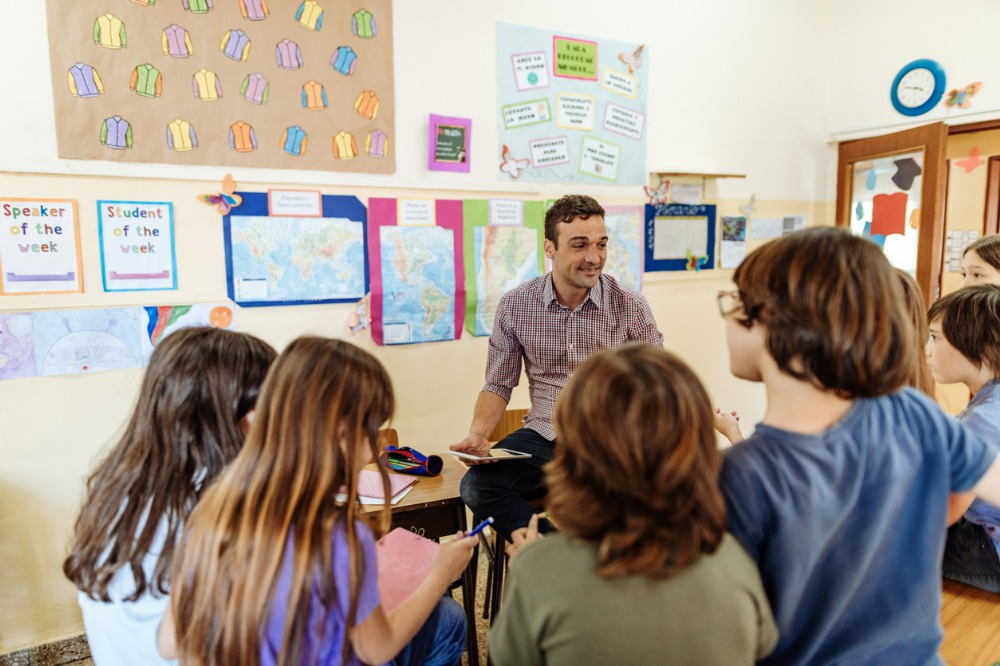
The NSW Department of Education Secretary Murat Dizdar recently mandated that all teachers working in the state’s public schools will undertake explicit instruction training immediately after the Easter holidays.
"On day one, term two, which is a school development day, right across 2,200 schools, we will be undertaking explicit teaching learning, in every single school in New South Wales,” Dizdar revealed in an interview with ABC News.
Explicit instruction, or ‘explicit teaching’, is a practice that breaks down what students need to learn into smaller learning outcomes and models each step, allowing students to process new information more effectively.
The Department’s decision follows a recent study analysing student surveys and NAPLAN results in which just 57% of secondary school students were found to received explicit teaching and feedback regularly, compared with 78% of primary students.
Dizdar says evidence shows that explicit teaching in the classroom can improve students’ learning outcomes and help them retain new concepts.
“The reason I loved this practice so much as a teacher was because I found it did not discriminate,” Dizdar said. “Whether a child is struggling or accelerating beyond their class or stage level, explicit teaching is proven to help all learners reach their potential.”
However, some experts say overreliance on explicit instruction may interfere with both long-term learning goals, and the aims of the Australian Curriculum.
Where is the evidence?
Associate Professor Jorge Knijnik, a teacher educator in the School of Education and a researcher at the Institute for Culture and Society and the Centre for Educational Research, says Department's push “overemphasises a single method and undermines teachers' professional expertise”.
"The current ‘back to basics’ debates in education, of which explicit instruction is one example, try to enforce one method as better or superior to others,” Associate Professor Knijnik wrote in MCERA.
"This mantra narrows the conversation around teaching methods; it undermines teachers’ professional expertise and society’s view of education in schools overall.”
Associate Professor Jane Hunter, an expert in curriculum, digital learning and pre-service and in-service teacher education, is also wary.
She points out that decades of education research in classrooms in low SES schools in NSW conducted by internationally recognised scholars and experts in pedagogy, teaching, learning, and assessment is not cited or spoken about in this recent Departmental push.
"For example, where is the research evidence from countless NSW studies conducted by members of the Australian Association for Research in Education [AARE], Fair Go, Quality Teaching or High Possibility Classrooms?" Associate Professor Hunter said.
“Where and what is the independent research evidence? The flavour now is to refer to advice or ‘studies’ from 'think tanks' or ‘new bureaus’ that do not have longevity in research in schools.”
However, the NSW Department said there "longstanding evidence" shows explicit teaching enhances learning for all students.
One international study, titled 'Load reduction instruction: Exploring a framework that assesses explicit instruction through to independent learning', found that explicit teaching helps educators to manage the cognitive load of students as they learn, providing the right balance of challenge and support for every learner.
The Department also pointed to research published by the Australian Education Research Organisation (AERO) this year which shows "explicit teaching strategies are inclusive of all students and benefit every student when learning new knowledge and skils".
“Explicit teaching is not new and is being used in classrooms across NSW schools," the spokesperson told The Educator. “We’re going to support every teacher as we sharpen our focus on explicit teaching in NSW public schools.”


